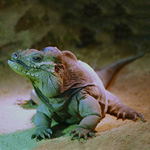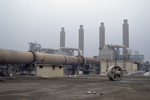Haiti’s Preserve of Caribbean Biodiversity: La Navase
By Haiti Chery (English) | Alliance Haiti (French) | CoRIS. Ile de la Navase, a Haitian island claimed by the U.S. under an arcane 1856 Guano Act and renamed Navassa Island, offers an opportunity for U.S. imperialists to return something to its rightful owners and for U.S. do-gooders to learn a thing or two from Haitians about wildlife conservation. (English | French)
Continue reading →

